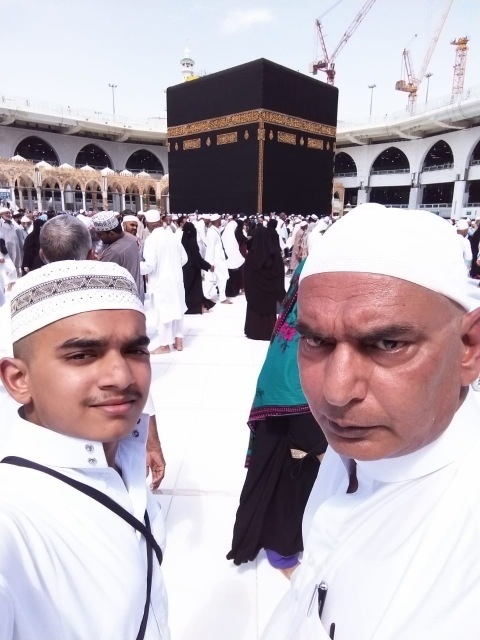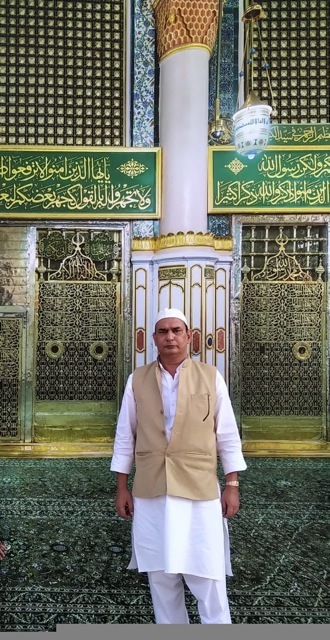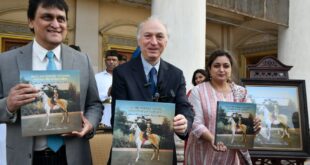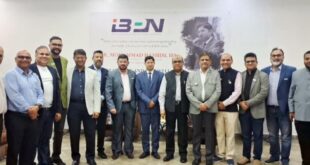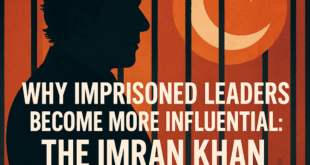by: Asad Mirza
After a year of agony, mental and physical stress for me and my kids taking care of my wife, undergoing treatment for carcinogenic lump in the breast, the final test carried out in the mid-September heralded for us a huge sense of relief when she was diagnosed as cancer-free by the doctors.
However, this relief was short-lived, as my father passed away suddenly. This was the first time for the kids to observe death and loss of a dear one at such close quarters and also understand the whole process of rituals related to burial and trying how to bear the loss of an affectionate and dear person.
As the kids and wife both deserved a stress free and healing holiday, I wanted to take them to a scenic place down south or to Goa, however, at the insistence of my wife, who wanted to pay her thanks to Allah for taking care of her and saving her from such a dreaded disease, and kids, who wanted to see the two most holy places in the Islamic world, this holiday was transformed into a spiritual holiday.
The first twenty-four hours of the visit, starting from Madina came as a wonderful and revealing surprise to me also. We reached Madina at 2.30 in the morning and after a refreshing bath and ablutions immediately rushed to the Prophet’s Mosque (Masjid-e Nabawi) and Prophet’s mausoleum. As by that time the rush had started for Tahajjud (early morning) prayers, we were able to offer our obeisance’s at the Prophet’s Tomb only, and as the place was packed by that time we were not able to offer prayers at Riyaz-ul Jannah (the area nearest to the Tomb of the Holy Prophet is considered to be a part of the Paradise and the prayers offered there and duas made there are supposed to give you reward 70 times over and immediate acceptance).

After Fajr prayers the first observation made by my 17-years old son, Fawwaz, was the peace and tranquillity prevailing in the Masjid and the quality of cantillation and recitation of the Holy Quran by the Muezzin and Imams. This also was the start of my bonding journey with him, as for the first time in life perhaps, we were together for 18 hours or more at a stretch and I was the only person to whom he could turn immediately to seek answers to the many questions arising in his mind related to his religion, his duties, the power of Allah, the place of the Prophet and his companions in Islam, differences between different religions and culture, observance of religious rituals by different religions, what divides the mankind into so many different religions, similarities and dissimilarities between the three religions of the book and many more sharp and in-depth queries.
As this was the first time that he was able to see the most sacred and holy places in the Islamic world by his own eyes. It turned into the start of a spiritual journey for him, propelling him to seek more knowledge about his own religion and seek answers to some complex questions also.
Since this was the first time that he had prayed outside of an Indian mosque, the quality of maintenance and management of the mosque by the Saudi authorities impressed him a lot.
A visit to Jannatul Baqi, the sacred graveyard, where most of the Prophet’s companions and relatives were buried, led him to observe the difference between Indian and real Islamic graveyards, based on the size and identification of the graves by a single stone, instead of the ostentatious ones built in most south Asian graveyards. Small things like this made him realise what the true Islam is and how it has changed in the south Asian context, based on its interplay with other religions.
Him wearing the Ihram (two unstitched pieces of white cloth, worn during Umrah and Hajj) and his visits to Muzdalifah, Mina and Arafat, outside Makkah, led to observe the insignificance of human life and how one can establish a unique personal relationship or equation with the Allah on a one to one basis, in a open natural surrounding.
For our only Juma prayer in Makkah, I asked him to pray in the Mataf (inner sanctum near the Kabah), out in the open blazing sun, which made him conceptualise what would be the scene on the Day of Judgement, when the Sun would be much nearer the earth, and in that heat, Allah will decide everyone’s fate based on their good and bad deeds.
Since I was the only source close to him to answer his queries, the experience became an innovative one for both of us. I was able to make him realise the duties which one has towards his parents, grandparent, brothers and sisters, society and above all to himself, the importance of various duties laid down for the followers in Islam and most important of all, how to establish a relationship between himself and the Allah. Besides, strengthening your belief in your religion and also respect for other religions.
I feel that in the south Asian context, being a Muslim is not an easy job, with many different religions having a plethora of physical or material link to the God. However, for a Muslim, one has to believe in the omnipresence and aura or light of Allah prevailing in the whole universe and through that to believe in his presence. So for Fawwaz, this was the first time that he was able to the see the two most holy shrines of the Islamic world and establish a sort of physical and spiritual bond with Allah and strengthen the bond already present.
Throughout our time in the holy cities of Madinah and Makkah his time was spent in praying and reading the Holy Quran at the holy mosques, and in his free time he searched for more information or knowledge on the internet. This perhaps was also an eye and mind-opening spiritual experience for him, perhaps propelling him to become a more knowledgeable and better Muslim, preparing him to present the true Islam to others, free of its deviations and mixing.
The experience also led me to analyse the duties of us elders towards our younger generation and led me to conclude that if we would like our kids to become better, observant, caring and learned human beings then it becomes our duty to take them on a spiritual journey to sites of whichever religion you belong to, as it will help in strengthening their belief in themselves and their religion and also make them a better human being.
I would recommend to all fathers to embark on such a spiritual journey, which ultimately turns, into a bonding journey, helping you to strengthen and form an unbreakable bond with your kids and also better your relationship with them. Amen!
——–
 Gawah (The Witness) – Hyderabad India Fearless By Birth, Pristine by Choice – First National Urdu Weekly From South India – Latest News, Breaking News, Special Stories, Interviews, Islamic, World, India, National News
Gawah (The Witness) – Hyderabad India Fearless By Birth, Pristine by Choice – First National Urdu Weekly From South India – Latest News, Breaking News, Special Stories, Interviews, Islamic, World, India, National News

